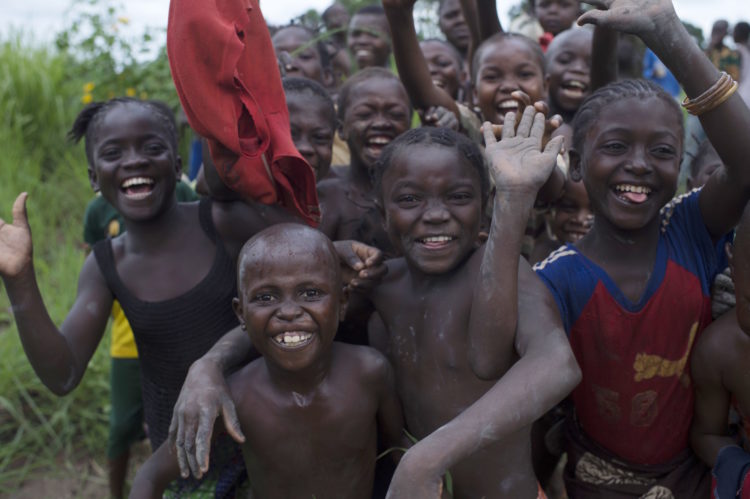The United Nations has just released its World Happiness Report 2017, which ranks 155 countries by their happiness levels for World Happiness Day, today, March 20.
In the bottom ten, among the least happy countries in the world, you will find eight African countries.
These are, in order, South Sudan, Liberia, Guinea, Togo, Rwanda, Tanzania, Burundi and Central African Republic. War-torn Yemen and Syria also sneak in the bottom ten.

More than 1,000 people in 155 countries, are asked this question: ‘Imagine a ladder, with steps numbered from 0 at the bottom to 10 at the top.
Algeria is the happiest country in Africa, followed by Mauritius, Libya, Morocco and Somalia
‘The top of the ladder represents the best possible life for you and the bottom of the ladder represents the worst possible life for you. On which step of the ladder would you say you personally feel you stand at this time?’
According to the results, Algeria is the happiest country in Africa, followed by Mauritius, Libya, Morocco and Somalia. Nigeria comes sixth, South Africa seventh, and Kenya 13th.
In other news, Nordic countries are particularly happy, while happiness in the USA is on the wane.
In collating the data, the researchers has also used information from Afrobarometer, the Ibrahim Index of African Governance and the Arab Barometer. The report admits that ‘Measures of subjective well-being, other than Gallup World Poll ones, have, on occasion, ranked African countries such as Ghana and Nigeria among the happiest in the world.’
Monday is #HappinessDay!
The #GlobalGoals are 17 ways to make the world a happier place. See: https://t.co/ZqvTqzT4RX #SmallSmurfsBigGoals pic.twitter.com/cLb0r8xQrJ
— United Nations (@UN) March 19, 2017
So why do African countries score so badly on the Gallup scale? The report suggests that this may be due to dissatisfaction with democracy and how it functions in the country:
‘Societies that have high levels of well-being tend to be economically developed, to have effective governments with low levels of corruption, to have high levels of trust, and to be able to meet citizens’ basic needs for food and health.’
Another reason for the low score of African countries in the happiness index, is citizens’ experience of ‘lived poverty’. To ascertain this, ‘respondents are asked whether they have gone without six basic necessities in the past year, ranging from food and water to electricity in the home.’ It is this that may explain dissatisfaction in countries like Burundi. Algeria, on the other hand, which is the happiest African country, is a leading oil-exporting country.
Lack of infrastructure which keeps up with population growth is also a key factor in a country’s unhappiness: ‘Africa’s huge backlog of infrastructure may play a more important role in determining personal well-being in Africa than in the more developed countries of the West’.
Africa will need to provide jobs for its youth if it is to meet their aspirations for the good life.
However this demand for infrastructure may find itself at odds with promoting democracy on the continent:
‘The latest Afrobarometer survey conducted there suggests that South African citizens might be willing to give up their democratic rights in favour of their living conditions being improved.’
The report also focused on the role young people play in the happiness of the continent: ‘Africa will need to provide jobs for its youth if it is to meet their aspirations for the good life.’ This will be an uphill struggle for a continent which has historically underinvested in its young people.
But, crucially, young Africans are positive about the future and that things will change for the better: ‘In almost all African countries, youthful optimism is above the national average.’
